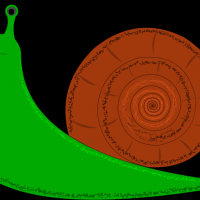Pesan: 10
Bahasa: English
Dakila_Sidhi (Tunjukkan profil) 13 Mei 2012 03.02.43

I would like to ask from you your suggestions on how to master the English language.
I know that there is school but there are its advantages to self-study.
I am not looking for beginner tutorials.
This website Lernu is good wherein it has intermediate and advance courses. Hopefully there would be some good sites aswell there that would teach an intermediate to become advance.
Thankyou

Demian (Tunjukkan profil) 13 Mei 2012 04.10.11
And when you come across new words, note them down, learn them and forget about them.
If you are still expecting to be spoon fed: Try Robert Fisk, Naom Chomsky, Slavoj Zizek, Arundhati Roy (politics).
Salman Rusdhie, Isaac Asimov, Arthur C Clarke, Ted Chiang (science fiction)...
the list is long... so ask yourself what interests you and start reading about it.

Do you know how I learned English? I went to the local library when I was still a child (12- or 13-years-old) and voila all the books were in English. I didn't care about English. All I was interested in was astronomy. So I would pick up a title like "Atlas of the Heavens" with an English dictionary (they had only monolingual dictionaries!) to learn about the heavens. A positive side-effect was that I learned English.
brodicius (Tunjukkan profil) 13 Mei 2012 06.44.08
Dakila_Sidhi (Tunjukkan profil) 13 Mei 2012 15.19.42
 , my 2nd year English textbook from school.
, my 2nd year English textbook from school.I'm also listing down unfamiliar words in my notebook from novels that I read; and then looking them up in my dictionaries.
And well, I'm still studying at school (although it's summer vacation for me this month), so there are still lessons to come for me to cherish.
Demian:Read, read and read. Read what you like. Say if you are interested in astronomy, read about it. If you are interested in literature, read stories and novels.... just read...That should be a good way to build up our vocabulary, and in this way we could become advance in the subject regarding vocabulary. We will notice grammatical rules and proper usage of words as well but would it really be enough to gain an advance proficiency from just reading those alone?
And when you come across new words, note them down, learn them and forget about them.
Do you know how I learned English? I went to the local library when I was still a child (12- or 13-years-old) and voila all the books were in English. I didn't care about English. All I was interested in was astronomy. So I would pick up a title like "Atlas of the Heavens" with an English dictionary (they had only monolingual dictionaries!) to learn about the heavens. A positive side-effect was that I learned English.
Even natives are not masters, although fluent. Which is why studying the language is also important other than just reading experiences.
brodicius:Adding to Demian's idea: use a program like Anki, or just make your own flashcards. Read something you're interested in, and every time you find a word you don't know, write it down in the list and revise all of the words occasionally.I have downloaded Jmemorize.

Demian (Tunjukkan profil) 13 Mei 2012 16.07.04
Dakila_Sidhi:That should be a good way to build up our vocabulary, and in this way we could become advance in the subject regarding vocabulary. We will notice grammatical rules and proper usage of words as well but would it really be enough to gain an advance proficiency from just reading those alone?Proficiency... now that's tricky. I can't cook (never got a chance because never did the need arise) so I am not familiar with the names of many vegetables and lentils, and practically none of the spices, in any language (English, Punjabi and Hindi/Urdu). Does that mean I am not fluent in either of them?
Dakila_Sidhi:Even natives are not masters, although fluent. Which is why studying the language is also important other than just reading experiences.I may be wrong but my hunch is English to the Philippines (as it is to India) is not a foreign language. It's a second language. Which means you are already bilingual and thus half-native.
==============
And to tell you the truth I never learnt (American speak: learned) grammar. Not when I first went to the library, never after that. And for a simple reason: I didn't like it. (American speak: it sucks!)
=============
So my advice would be, don't care too much about grammar and speaking "perfectly" which you may often confuse with speaking like an American. The culture is different and so will be your language.
I never use words like "suck", "go to hell", "bucks"... that doesn't make my English less pure. I just happen to speak a different dialect (Indian English) which often sounds "archaic" to the US, and perhaps British, ears.
For instance I use the word "apologise" a lot. And it's common here. That doesn't mean we all speak bad English. We just happen to speak a different variant.
Listen to this professor's lecture on Quantum Mechanics at a premier Indian institute. He speaks slow and in a low voice not because he doesn't know English. It's because of the culture.
I am not against teaching the grammar. But please don't over emphasise its study.
erinja (Tunjukkan profil) 13 Mei 2012 16.22.51
The added bonus is that you can read something you enjoy. Reading a good book is more fun than doing flash cards. It's not to say that you should never do flash cards, but reading a book will teach you words that aren't always in somebody's pre-made stack of flash cards, or words that you maybe didn't think you needed to study.
darkweasel (Tunjukkan profil) 13 Mei 2012 16.30.44
Demian:I agree. I learned a lot of English by reading about things I’m interested in on the English-language Wikipedia, which has better coverage of most topics than the German-language edition anyway.
Do you know how I learned English? I went to the local library when I was still a child (12- or 13-years-old) and voila all the books were in English. I didn't care about English. All I was interested in was astronomy. So I would pick up a title like "Atlas of the Heavens" with an English dictionary (they had only monolingual dictionaries!) to learn about the heavens. A positive side-effect was that I learned English.
robbkvasnak (Tunjukkan profil) 13 Mei 2012 18.51.05
Astono465 (Tunjukkan profil) 13 Mei 2012 19.26.51
Here's a something I used when I was learning french. Put on any DVD, and in the setup mode, choose "English" for audio, and your personal language in the subtitles section. So, in my case, I heard the DVD in french and read the english subtitles, after a while I noticed the subtitles less and less. This works even better if you own the DVD and can listen to it as much as you wish. Also, if you have a TV series on DVD then you can just watch a 1/2 hour program and not feel overwhelmed. For me I used "M*A*S*H" which is a comedy and one of my favorite TV shows from when I was a kid. If, this dosn't work for you, don't despair, there are plenty of English speakers within the Lernu family who would be more than happy to help you.
Hyperboreus (Tunjukkan profil) 14 Mei 2012 06.02.38






